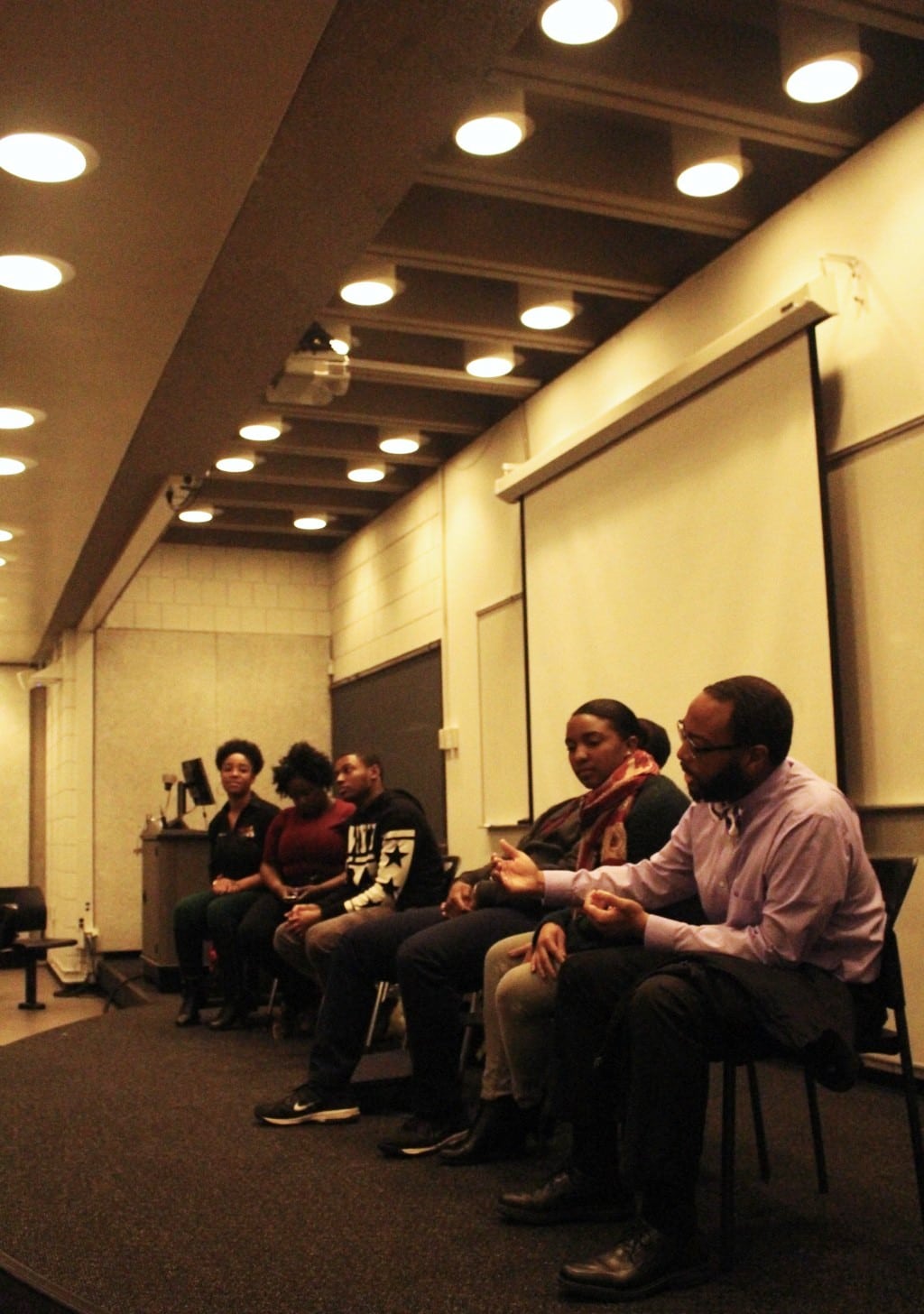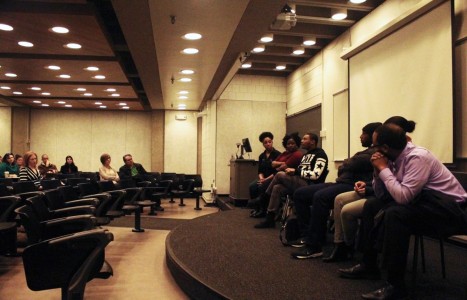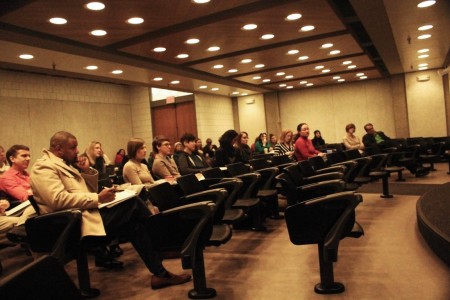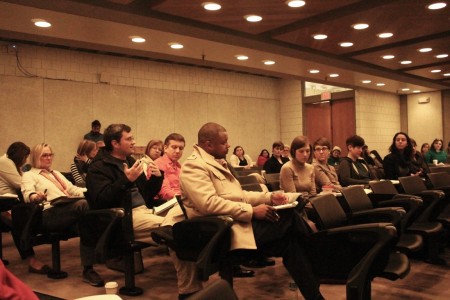By Andrew Hebert–
On Feb. 10, students and faculty gathered in the Bingham Humanities Building for a discussion panel that featured students speaking about their lives and experiences. “What I Wish My Instructors Knew: A Panel of STUDENTS Speaking about Diversity and Pedagogy,” was an important opportunity for students to teach their professors about their perspective.
Tasha Golden, a U of L graduate teaching assistant, organized the event. She, along with other professors, wanted to hear what students had to say about issues that they wouldn’t normally get to speak about.
“We organized this discussion to hear the student’s perspective on the classroom setting. We always hear administration and faculty discuss these issues but this is an opportunity for real students to be heard,” said Golden.
The panel consisted of one African-American faculty member, Tierney Bates, the director of the Cultural Center at U of L. Alyssa Betts, Talisha Wilson, Shontez Taylor, Jamal McFarland and Caitlin Durgin were student participants, all African-American. The panel also represented a myriad of sexual orientations. Most of the audience consisted of older white men and women, both students and staff.
Many of the students’ points had to do with assumptions made by people of other races. Shontez Taylor described an experience where a professor asked him about the Harlem Renaissance.
“The Harlem Renaissance? I mean, I wasn’t there, but I liked the music,” said Taylor.
One professor in the audience objected that he simply notices people with “crazy hair, people that act up, and people of color,” and how he couldn’t help but single out minority students subconsciously. The panel responded with requests for professors to be curious without being judgmental. They advocated for a practice of caution, while still pursuing diverse perspectives.
Jamal McFarland often touched on being one of the few African-American students in Speed School.
“For me, I wish professors understood what we were going through. I’m planning meetings. I’m going to conferences. I’m working. I’m going to school on top of doing something no one thought I could do,” said McFarland.
Taylor said he also experienced an incident with a professor using a homophobic slur to negatively describe a topic of study in class. Regarding this incident, Taylor was very blunt with the faculty in attendance.
“You don’t get to be stupid in academia,” said Taylor.
Some of the students on the panel seemed fed up with discrimination on a day-to-day basis and the culmination of events on a national scale. Bates cited last year’s events in St. Louis.
“I think people don’t understand the whole identity of what is going on in our country right now. If you want to understand black culture, go to the barbershop. Go to an all black church. Get out of your comfort zone” said Bates.
The event provided the audience with a view of how the classroom can create uncomfortable situations for minorities.
“The responsibility to make change relies on everybody,” said Bates. “The administration, the professors, the students, even the janitors. The environment must change.”
- Students assemble to discuss diversity related to the educational setting. Photo by Ali Davis
- Photo by Ali Davis
- Faculty and students attend the panel lead discussion. Photo by Ali Davis
- Photo by Ali Davis
- The panel opens to audience questions. Photo by Ali Davis
- Photo by Ali Davis










